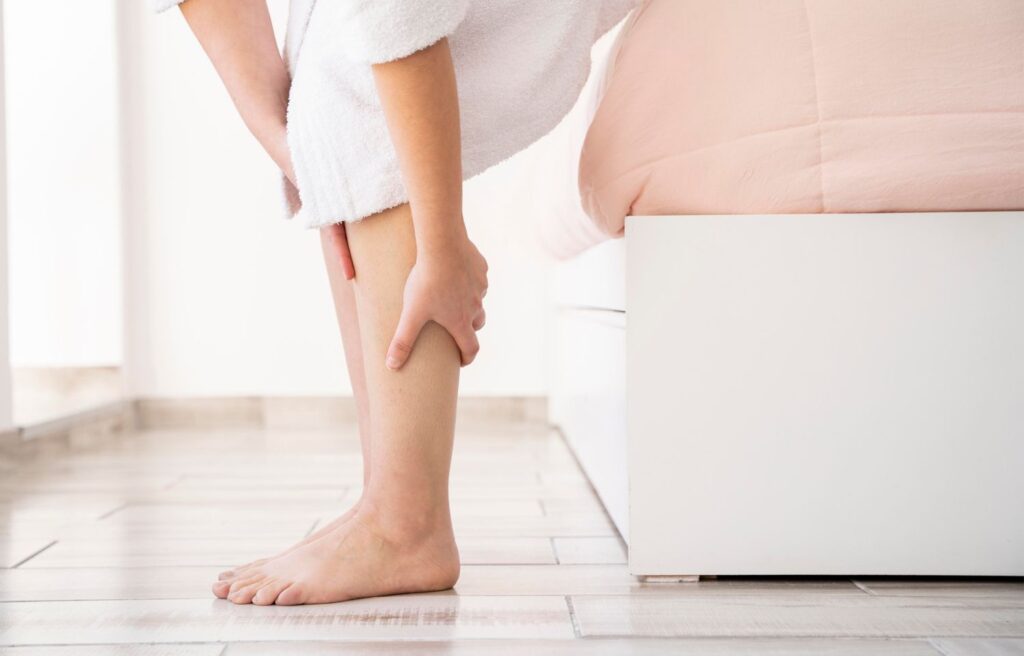RLS causes an irresistible urge to move your legs, usually happens at night when you’re trying to sleep. The symptoms can be mild or severe. They can also come and go over time.
Since the early 2000s, there has been a growing body of research into the potential causes of restless legs syndrome (RLS). While the exact cause of the condition remains unknown, there appears to be a link between RLS and three key factors: brain concentrations of iron, brain dopamine concentrations, and genes.
Iron is very important for preventing restless legs syndrome (RLS).
There’s no cure for RLS, but iron supplements can help relieve the symptoms.
Iron is a mineral that plays a vital role in many bodily processes, including the production of dopamine. Dopamine is a neurotransmitter that helps to regulate movement and is thought to be involved in the development of RLS.
Iron also plays a role in the transport of oxygen in the blood. Some people don’t get enough iron in their diet and may need to take supplements. Others may need more iron if they’re pregnant or have certain medical conditions.
A number of genes have also been identified as being potentially involved in the condition. While more research is needed to confirm the exact role that each of these factors plays in the development of RLS, the current evidence suggests that they may all be involved in the condition in some way.
Dopamine and RLS: The Missing Link
The neurotransmitter dopamine is known to play a role in many neurological disorders, including restless legs syndrome (RLS). Dopamine is a chemical messenger that helps to transmit signals between nerve cells in the brain.
A deficiency of dopamine has been linked to RLS. Dopamine agonists are a type of medication that work by increasing levels of dopamine in the brain. These medications can be effective in treating RLS, and they are often the first line of treatment for the condition.
While there are prescription medications that can increase dopamine levels, there are also a number of supplements that can help.
Here are some of the most well-researched dopamine-boosting supplements:
Tyrosine: Tyrosine is an amino acid that’s a precursor to dopamine. This means that it helps the body produce dopamine. Tyrosine is found in many foods, but it’s also available in supplement form.
Vitamin B6: Vitamin B6 is another nutrient that’s necessary for dopamine production. It’s found in many foods, including meats, poultry, fish, and bananas. It’s also available in supplement form.
Omega-3 fatty acids: Omega-3 fatty acids are essential for overall health, but they may also help increase dopamine levels. They’re found in fish, nuts, and seeds. They’re also available in supplement form.
Green tea: Green tea contains a compound called L-theanine, which has been shown to increase dopamine levels.
Ginkgo biloba: Ginkgo biloba is a plant that’s been used for centuries in traditional medicine. It’s thought to boost dopamine levels by increasing blood flow to the brain.
There’s some evidence to suggest that these supplements can help increase dopamine levels. However, it’s important to keep in mind that more research is needed. If you’re considering taking any of these supplements, be sure to talk to your doctor first.
Natural Ways to Ease RLS Symptoms
The good news is that there are some natural ways to ease your symptoms.
Here are a few natural remedies that may help with RLS:
1. Get regular exercise. Exercise can help relieve RLS symptoms by improving blood circulation and reducing stress. Just be sure to avoid strenuous activity close to bedtime, as it may make it harder to fall asleep.
2. Massage your legs. A simple leg massage can help relieve RLS symptoms by improving blood circulation and relaxing your muscles.
3. Soak in a warm bath. Soaking in a warm bath can also help improve circulation and reduce muscle tension. Add Magnesium for added relief.
4. Apply heat or cold. Applying a heating pad or ice pack to your legs can help relieve muscle pain and discomfort.
5. Stretch your legs. Gently stretching your legs can also help reduce RLS symptoms.
6. Quit smoking. If you smoke, quitting can help improve your circulation and reduce your risk of RLS.
7. Limit your alcohol intake. Drinking alcohol can make RLS symptoms worse, so it’s best to limit your intake or avoid it altogether.
8. Get enough sleep. Getting enough sleep is important for overall health, and it can also help reduce RLS symptoms.
If natural remedies don’t seem to be helping, talk to your doctor. There are also some medications that can help relieve RLS symptoms.
As of now, there is no cure for restless legs syndrome (RLS). However, there are treatments that can help lessen the symptoms. These include things like taking regular breaks during extended periods of sitting or standing, exercising regularly, massaging legs and feet, and avoiding caffeine and nicotine.
People with RLS often find that their symptoms are worse at night, making it difficult to fall asleep and stay asleep. Taking steps to establish a regular sleep schedule and environment can help (for example, going to bed and waking up at the same time every day, avoiding bright lights and screens in the evening, and creating a relaxing bedtime routine). In some cases, medications may be needed to manage RLS symptoms.
By understanding the potential causes of RLS, researchers may be able to develop more targeted treatments that could help to improve the quality of life for those affected by the condition.





















